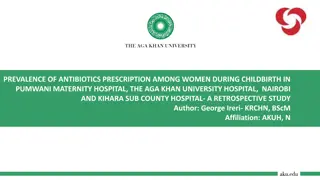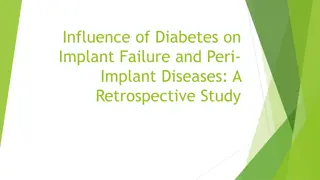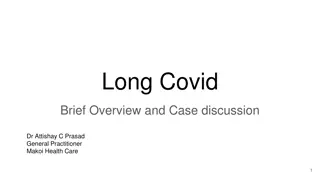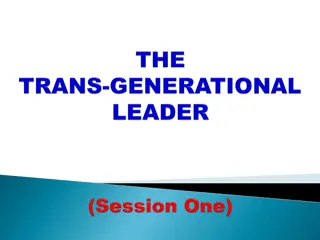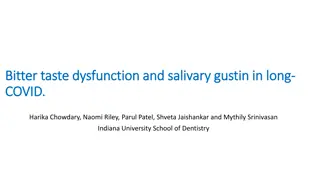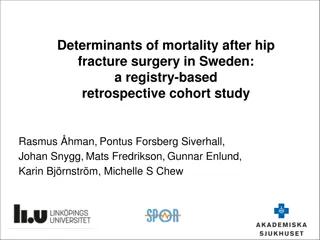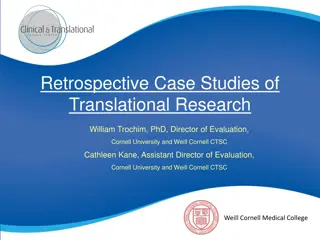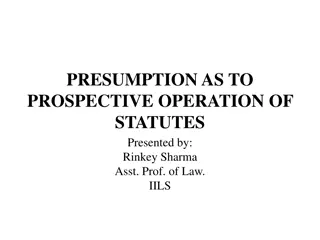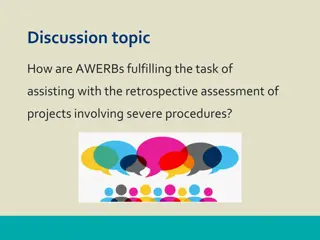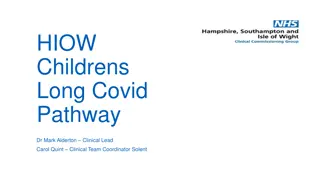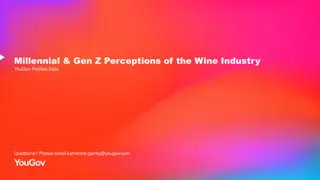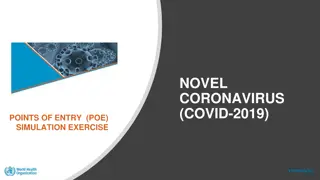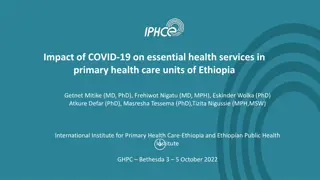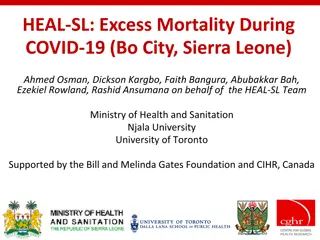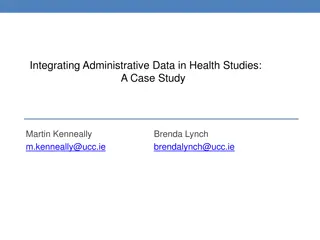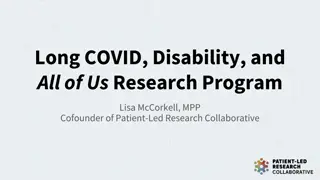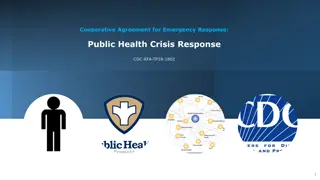Impact of COVID-19 on Gen-Z Health: A Retrospective Study
The CHANGE.UP Project conducted a retrospective study to analyze the effects of the COVID-19 pandemic on the health of Generation Z individuals. The study examined physical, mental, and social impacts, revealing insights into different health dimensions and their interconnections. Results highlighted protective factors such as physical activity and close relationships, as well as risk factors like high BMI and negative emotional states.
Uploaded on Sep 06, 2024 | 0 Views
Download Presentation

Please find below an Image/Link to download the presentation.
The content on the website is provided AS IS for your information and personal use only. It may not be sold, licensed, or shared on other websites without obtaining consent from the author. Download presentation by click this link. If you encounter any issues during the download, it is possible that the publisher has removed the file from their server.
E N D
Presentation Transcript
CHANGE UP Project: How the Pandemic Affected the Health of Gen-Z University of Portland Public Health Lab Authors: Katherine Motley, Chloe Okimura, Cam Wilder, Tiffany Wu, & Jasmine Yee Faculty Mentor: Dr. Andrew Lafrenz
Introduction & Background The CHANGE UP Project is a hybrid retrospective study investigating the physical, mental, and social impact of the COVID-19 pandemic on Generation Z. This study sought to understand not only the health of Generation Z during the pandemic, but also the overall trajectories of those health outcomes based on specific mediating factors.
Sampling Results Population Demographic 20 year-old (mean) Age 68% female 16.5% male 3% non-binary 3% other or prefer not to say Gender 51% white 29% Asian 18% Hispanic 3% Native Hawaiian or Pacific Islander Race
Sampling Results Population Demographic 67 different zip codes Zip Code Residence (Pandemic) 31 different zip codes Zip Code Residence (Currently) 58% synchronous online 49% asynchronous online 36% hybrid 15% in-person 4% not a student School Environment
Descriptive Results Dimension of Health During Pandemic Mean (SD) Currently Mean (SD) Physical Health 5.1 (2.6) 6.5 (1.7) Mental Health 5.0 (2.4) 7.0 (1.7) Social Health 4.5 (2.5) 7.0 (1.8)
Correlational Results Key significant finding: interconnectedness of our different dimensions of health * All three dimensions of health (physical, mental, and social) were strongly associated with each other *(mod to strongly correlated = r>.60)
Inferential and Translational Results Protective factors vs. risk factors: Dimension of Health Protective Factors Risk Factors Physical activity, nature, healthy eating High BMI, no insurance, overall stress Physical Health Access to resources, in-person close friends, healthy eating Family stress, negative emotional states Mental Health Seeing friends in-person Social media use, social isolation Social Health
Translational Results copy_2ED43827-B66F-4B2A-98D4-8C44E816B163.MOV
Discussion This unique study sheds light on the complex relationships between significant mediators and different dimensions of health These findings provide valuable data that can inform clinical practice, health policy, and public health interventions
Conclusion Explored the impact of COVID-19 on the physical, mental, and social health of Gen-Z Some limitations Future research should focus on the development of evidence-based interventions.


